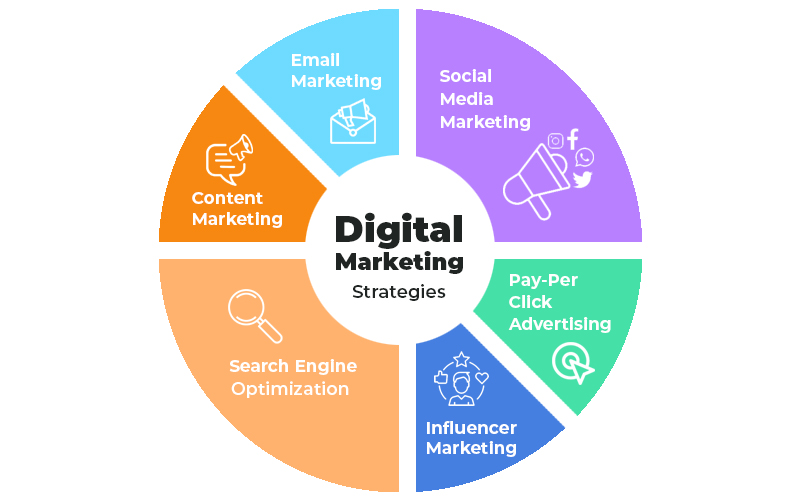Introduction to Digital Marketing Strategies
What is Digital Marketing?
Digital marketing refers to the suite of marketing activities conducted over digital channels to engage with current and prospective customers. It leverages platforms like social media, search engines, websites, and email to promote brands, increase reach, and drive consumer interaction. Unlike traditional marketing, digital marketing facilitates real-time feedback and analytics, leading to more responsive customer engagement and flexible strategy adaptations. As businesses continue to evolve, so too do the ways in which they communicate value and relate to their audiences in the dynamic digital space.
Digital marketing encompasses various strategies, including search engine optimization (SEO), content marketing, social media engagement, and paid advertising. The core objective is to build an online presence that fosters relationships with audiences and establishes trust. With the dawn of Artificial Intelligence (AI) and big data, personalization in digital marketing has reached unprecedented levels, offering consumers tailored experiences.
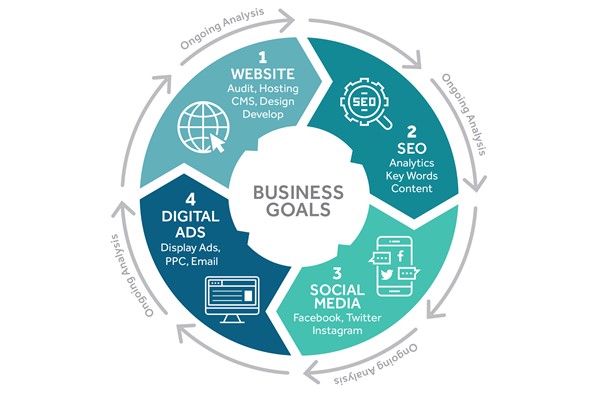
Importance of Digital Marketing in 2025
By 2025, digital marketing will be more crucial than ever for businesses. As the digital landscape continues to expand and evolve, companies that harness its potential will thrive. Here are a few reasons why digital marketing will be indispensable in 2025:
- Expanding Digital Presence: With the internet’s penetration and mobile device usage increasing, a sturdy digital presence is paramount. Businesses that optimize their online platforms will not only capture broader market segments but also nurture ongoing consumer relationships.
- Data-Driven Decision Making: Digital marketing strategies are fueled by data. They provide valuable insights into consumer behaviors and preferences. Companies that employ agile data analytics (learn more about how big data is transforming digital marketing) can swiftly adapt to trends and preempt challenges, ensuring their marketing efforts are both effective and efficient.
- Personalization and Customer Experience: The demand for personalized marketing experiences is soaring. In a saturated marketplace, individuals gravitate toward brands that recognize their unique needs. Digital marketing in 2025 prioritizes personalization through AI and machine learning, delivering tailored experiences that captivate users and ensure long-term loyalty.
- Cross-Platform Integration: Integration across multiple digital avenues will be seamless by 2025. Brands will benefit from cross-platform storytelling, reaching audiences consistently across various devices and platforms. Effective integration boosts brand recognition and customer engagement.
In summary, digital marketing will remain a cornerstone for strategic growth across industries in 2025. Businesses prioritizing these strategies will find themselves not just surviving but thriving amidst the rapidly changing digital landscape. As the technology and consumer expectations evolve, adaptability and innovation in digital marketing will guide successful enterprises to new heights.
Key Digital Marketing Strategies for 2025
SEO Techniques to Enhance Visibility
In 2025, Search Engine Optimization (SEO) remains a cornerstone for enhancing online visibility and attracting organic traffic. Businesses must adapt to evolving search engine algorithms with innovative SEO techniques that prioritize user intent and experience. Key areas of focus include:
- Voice Search Optimization: With a rise in voice-activated devices, crafting content that answers common questions using natural language is critical. This approach aligns with conversational search patterns, helping to capture voice-based queries.
- Mobile-First Indexing: Prioritizing mobile user experience is crucial, as Google continues to utilize mobile-first indexing. Websites should be responsive, fast-loading, and ensure seamless navigation on mobile devices.
- Featured Snippets and Zero-Click Searches: Structuring content to appear in featured snippets can drive significant traffic. Use schema markup to enhance the chances of occupying these coveted positions in search results.
- Local SEO: Optimizing for local searches ensures that businesses are visible in local listings and maps. With consumers increasingly relying on mobile searches for local products and services, maintaining updated Google My Business profiles and gathering customer reviews is vital.
For a deeper dive into the latest SEO trends and techniques, check resources like Search Engine Journal.
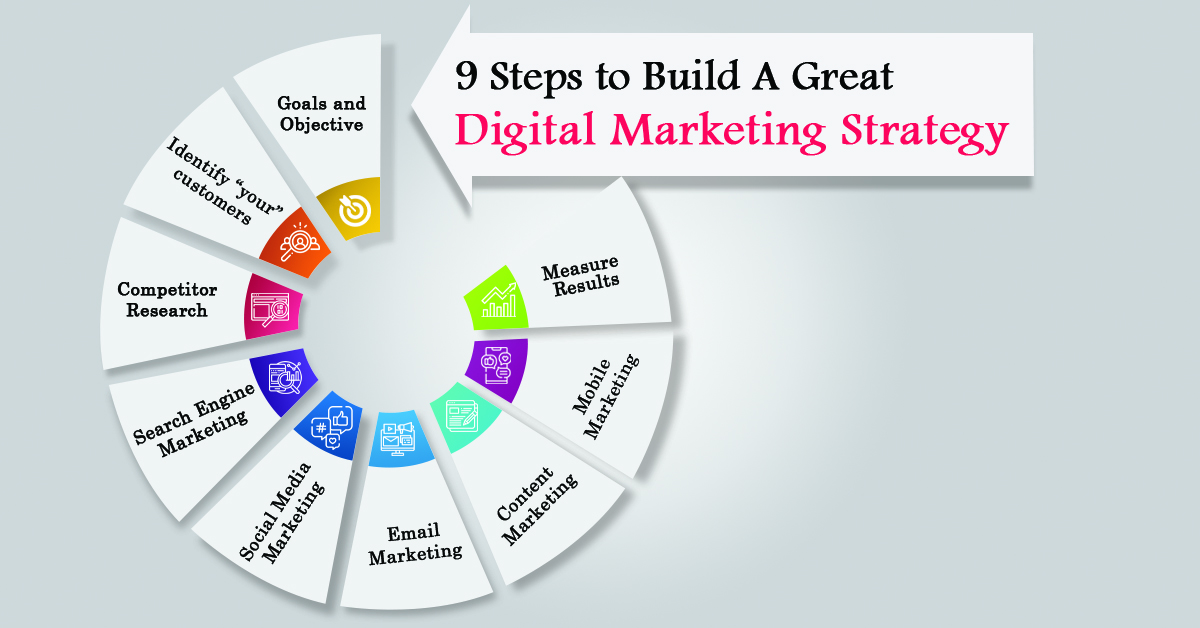
Effective Content Marketing Strategies
In 2025, content marketing is more about quality and audience engagement than ever before. Creating a robust content strategy involves:
- Personalized Content Delivery: By utilizing AI and data analytics, businesses can deliver content tailored to individual user preferences, increasing engagement and conversions.
- Video and Interactive Content: Videos remain a powerful medium for storytelling, product demonstrations, and customer engagement. Additionally, interactive formats such as quizzes, polls, and infographics can enhance user interaction and retention.
- Original Research and Thought Leadership: Providing unique insights and conducting sector-specific studies establish businesses as authorities in their fields, attracting backlinks and improving SEO.
- Sustainability and Social Responsibility: Consumers are progressively conscious about social issues. Effective content marketing embraces social responsibility narratives, demonstrating brand values and fostering a loyal community.
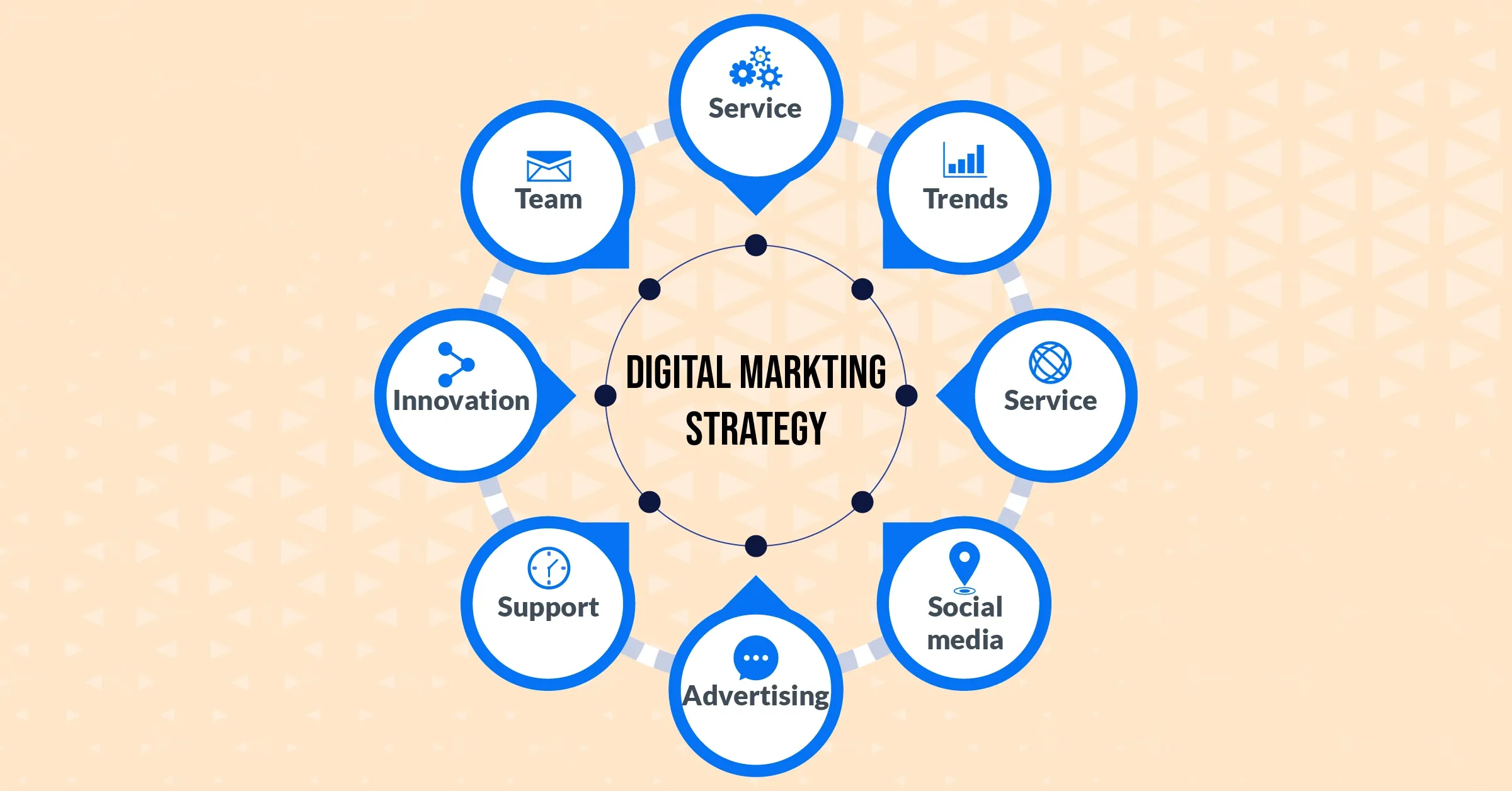
Leveraging Social Media for Engagement
Social media platforms continue to be indispensable for engaging audiences and building brand loyalty:
- Authentic Engagement: Establishing genuine connections with audiences through transparent communication and consistent interaction is vital. This includes responding to comments, sharing user-generated content, and maintaining an active presence.
- Influencer Partnerships: Collaborating with influencers who resonate with your brand ethos can amplify reach and build trust. Micro-influencers, in particular, offer niche audiences and higher engagement rates.
- Emerging Platforms and Features: Staying ahead involves experimenting with new social platforms and features, such as live streaming, stories, and virtual reality experiences, to create immersive brand interactions.
- Data-Driven Strategies: Leveraging analytics tools to track engagement metrics helps refine social media strategies and identify content that resonates with your audience.
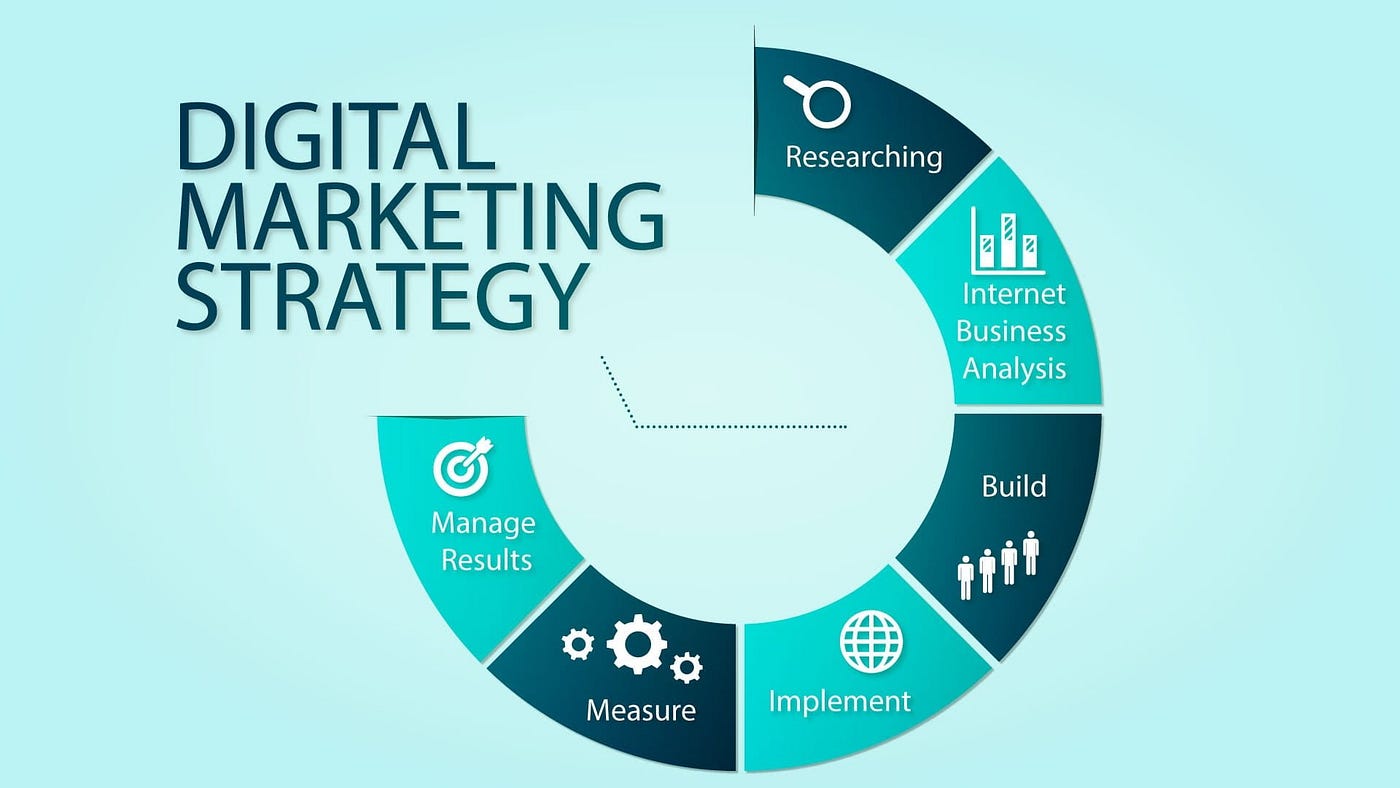
Navigating the ever-evolving digital marketing landscape in 2025 demands a strategic approach centered around consumer behaviors, technological advancements, and emerging trends. By integrating these key strategies, businesses will achieve sustained growth and meaningful connections with their audiences.
Measuring the Success of Digital Marketing
Key Metrics to Track
In the rapidly-evolving landscape of digital marketing, tracking the right metrics is essential to gauge the effectiveness of your strategies and make informed decisions that drive growth. By 2025, the importance of these metrics will only amplify as businesses strive to maintain a competitive edge.
- Conversion Rate: This metric is crucial as it measures the percentage of users who take a desired action, such as completing a purchase or signing up for a newsletter. Enhancing conversion rates is the heart of optimizing your marketing efforts.
- Customer Acquisition Cost (CAC): Knowing how much it costs to acquire a new customer provides insights into the efficiency of your marketing campaigns. A lower CAC indicates a more cost-effective strategy and a higher return on investment.
- Customer Lifetime Value (CLV): Understanding the total value a customer brings over their entire relationship with your business allows you to focus efforts on retaining those who contribute the most to your revenue.
- Bounce Rate: A high bounce rate can signal that your website’s content is not resonating with your audience. Identifying which pages have the highest bounce rates can help pinpoint areas for improvement.
- Engagement Rates on Social Media: Engagement metrics, including likes, shares, comments, and click-through rates, are vital for assessing how well your content connects with your audience and fuels meaningful interactions.
Analyzing Data for Improvement
Once metrics are gathered, analyzing data becomes a pivotal step in refining your digital marketing strategies. By interpreting these insights accurately, you can pinpoint areas of success as well as opportunities for enhancement.
Data-driven marketing encourages:
- Informed Decision Making: Delve into your metrics to understand patterns, usage behaviors, and customer preferences. Utilize robust analytics tools, such as Google Analytics, to break down data into actionable insights. Remember, what gets measured, gets managed.
- A/B Testing: Implementing A/B tests allows you to experiment with different elements of your marketing campaigns, from email subject lines to landing page designs, and identify what resonates best with your audience.
- Real-Time Adjustments: With real-time data, marketers can swiftly adapt strategies to respond to market changes or customer feedback, thereby optimizing current campaigns and improving future initiatives.
The digital marketing landscape in 2025 demands a nuanced understanding of metrics and analytics. As businesses seek to enhance their strategies, learning from data will give them the power to not only survive but thrive in a highly competitive market. For further insights on how to harness data effectively in digital marketing, consider exploring resources like Google Analytics which offers comprehensive tools for tracking and reporting.
By consistently tracking key metrics and meticulously analyzing the data collected, businesses can ensure their digital marketing strategies are not only meeting their goals but are poised for success in an ever-evolving digital world.
Conclusion: Adapting to Digital Marketing Trends
As we navigate an ever-evolving digital landscape, the importance of adapting to digital marketing trends cannot be overstated. For businesses aiming to thrive in 2025, it is essential to not only embrace these changes but to strategically integrate them into their marketing efforts.
The digital marketing landscape is marked by rapid technological advancements and shifting consumer preferences. This dynamic environment demands that marketers utilize a blend of innovative tactics and proven strategies to remain competitive. By harnessing the power of artificial intelligence, customizing content marketing to the needs of the audience, and leveraging data-driven insights, brands can create engaging experiences that resonate with their target demographics.
It is also vital for businesses to focus on developing a holistic approach to their marketing strategies. This involves understanding the nuances of each digital channel, optimizing them for peak performance, and ensuring they work cohesively to deliver a consistent brand message. For businesses looking to deepen their understanding of these channels, resources such as the Digital Marketing Institute offer valuable insights into current and future trends.
Moreover, integrating SEO best practices remains indispensable in boosting online visibility and attracting organic traffic. As search algorithms become increasingly sophisticated, businesses must prioritize delivering value through high-quality, relevant content that aligns with user intent. Investing in advanced SEO tools and techniques will help businesses stay ahead, ensuring their content ranks well across search engines.
Another key strategy for future-proofing digital marketing efforts is the effective use of social media platforms. As user engagement on these platforms continues to skyrocket, marketers should craft interactive and targeted campaigns that foster community and brand loyalty. Understanding platform-specific trends and user behaviors will be critical to maximizing reach and engagement.
Ultimately, keeping abreast of key metrics and diligently analyzing data will empower businesses to refine their strategies and achieve better results. By fostering an agile marketing approach and remaining open to innovation, brands can not only meet but exceed the expectations of their audience in 2025 and beyond.
